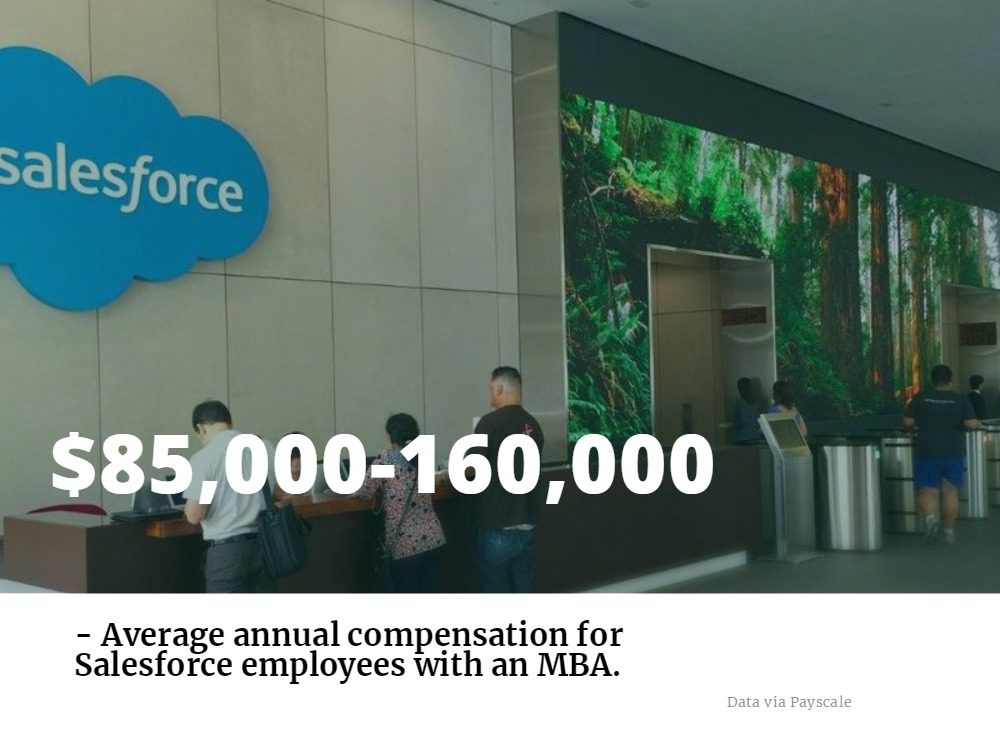Masters Advantage: Business Analytics or Accounting?

A specialized master’s degree can be a valuable tool for enhancing your career prospects. If you have a specific career in mind—financial analysis, marketing, statistics, etc.—a master’s degree in your specialty can provide you with the advanced training you need to be successful. So, the question is, what specialized masters is right for you and will give you the advantage you want?
To help you out, we’re putting the most popular master’s degrees head-to-head in our new series. First up, we’re comparing Business Analytics and Accounting.
What is a Master’s in Business Analytics?
A Master’s in Business Analytics is designed for students interested in big data. These individuals are interested in using machine learning algorithms to process data and draw conclusions in everything from sports to consulting, manufacturing, and healthcare. It’s all about making sense of vast amounts of data to streamline business.
What is a Master’s in Accounting?
A Master’s in Accounting is exactly what it sounds like—it’s hyper-focused on accounting. Individuals who choose this path are interested in completing their CPA examination and pursuing a career in corporate accounting. You’ll be prepared to take a strategic accounting role in audit, tax, financial management, and more.
Business Analytics or Accounting: Coursework
There’s some overlap in the coursework you’ll take as an accounting master’s student and a business analytics student. Both master’s programs delve into financial topics and include finance-related courses. In fact, some Master’s in Business Analytics programs offer a professional track in finance.
Also, in both cases, you’ll dive into analytical techniques and data modeling—though in the Accounting program it will always emphasize finance and accounting areas whereas Business Analytics tends to be more generic.
However, that’s where the similarities end. In Business Analytics, you’ll dive deep into computer programming, statistics, machine learning, and visualization. On the other hand, a Master’s in Accounting will take you into financial reporting, auditing, business taxation, business law, and management accounting.

Business Analytics or Accounting: Accessibility
Both master’s degrees can typically be completed in 12 months with some programs lasting up to two years. In addition, students can complete either program through full-time, part-time, online, or hybrid tracks. What’s different is the application process and what type of student is best suited to each program.
Business Analytics students must be mathematically inclined and gifted in quantitative fields. Many of these Master’s programs are STEM-designated, so candidates must be prepared to demonstrate high grades and test scores in these subjects.
Master’s in Accounting applicants are expected to have a strong background in accounting, often having earned their undergraduate degree in the same field. Work experience is not typically required unless the student has no practical training in accounting.
Business Analytics or Accounting: Careers
As a Business Analyst, you may earn a higher salary than an accountant when starting—around $15,000 more—and you’ll have more job opportunities. A Master’s in Business Analytics graduate can work in a variety of analyst roles in everything from marketing to finance, strategy, and statistics. While, on the other hand, a Master’s in Accounting graduate is typically regulated to an accounting, tax, or audit career.
Business Analysts are in high demand and have many opportunities regarding their careers, typically earning around $85,000 to start. They can work in almost any industry and in a variety of job functions, including:
- Business analyst
- Budget analyst
- Financial analyst
- Corporate strategy analyst
- Actuary
- Social media data analyst
- Business intelligence analyst
- Machine learning analyst
Master’s in Accounting graduates are also in high demand and can work in a range of industries. Everyone from public accounting firms to government organizations, financial institutions, and nonprofits need accountants. However, when it comes to job functions, graduates are typically limited to working as an accountant or an auditor earning around $69,000 to start.
Business Analytics or Accounting: The Top Programs
To earn your Master’s in Business Analytics or Accounting, there are many top programs across the country that are highly regarded. It all depends on your specific interests and goals.

If you want the best of both worlds, the USC Marshall School of Business is the only program to be in the top five for both degrees. It is highly regarded for offering great flexibility and quality curriculum.
In the Midwest, one of the top Master’s program for Business Analytics can be found at Purdue University’s Krannert School of Management. Its MS Business Analytics and Information Management program is 11 months long, affordable, and STEM-oriented. For a Master’s in Accounting, you should look toward the University of Illinois Gies College of Business, which offers the best STEM-designated accounting program in the country with a 98 percent job placement rate.
On the East Coast, MIT Sloan offers the best Master’s in Business Analytics program with 100 percent of the most recent graduating class earning employment offers by graduation. Whereas NYU Stern an excellent Master of Science in Accounting, ranked 9th overall by the U.S. News & World Report.
How You Can Become an Implementation Consultant with an MBA

If you’re a natural problem solver who likes tackling large projects and managing teams, a role as an Implementation Consultant (IC), could be the perfect fit. With jobs in fields as varied as compliance, human resources, software development, healthcare and pharmaceuticals (among others) this is a top job for MBAs who want to put their management skills to work.

Companies like Oracle, Deloitte, IBM, PwC and McKinsey all frequently seek ICs to serve in various capacities, which is great news for MBAs who are just starting out or considering a career shift.
What is an Implementation Consultant?
In short, an IC is hired by an organization to ensure that a new system, tool, or process is used efficiently. According to an article describing the position on modernanalyst.com, “You [will be] chiefly responsible for understanding the client’s requirements and … addressing gaps so that the solution or product will meet your particular client’s needs.”
An IC is hired by a service provider (such as a tech company or a finance and consulting firm) to put the service into place and ensure that it runs as smoothly as possible. Often, the IC is brought in on a project by project basis so a fair amount of flexibility is required in the role. Also important are communication and “people skills,” as the IC will work with teams in various levels and divisions within a company.
A story on LinkedIn explored the role of the IC in the tech realm. The skills laid out, however, are applicable to any field that requires such a position. They are:
- Client Engagement
- Cross Domain Expertise
- Presentation and Training
- Cross Cultural Competence
The Implementation Consultant often acts as the ‘face’ of the service or product, so an understanding of a client’s needs and values is one of the most important aspects of this role.
Examples of scenarios in which a company brings in an IC are implementing new software, which requires configuring the product to the company’s needs and ensuring follow through after installation; assisting organizations with new corporate structures such as those that happen during mergers or acquisitions, and putting new policies and procedures in place after shifts in government regulations.
Implementation Consultant Salaries
Implementation Consultants can earn an average of $98,000 per year, according to Paysa data. This represents a range of about $85,000 in the 25th percentile of earning and $110,000 in the 75th percentile. The top 10 percent earn over $123,000.
Five of the highest paying companies for ICs are Leidos, BlackLine Systems Accounting Software, Salesforce, Omniture, and Kaplan K-12 Learning. The cities with the highest paid positions for the role are Los Angeles, San Francisco, Seattle, Philadelphia, and Boston.

A recent FirmsConsulting.com article says it best regarding the need for good ICs:
“No matter how good a firm is, they can never predict all the problems with implementing a strategy.”
Getting Started
Among the skills required to become an effective Implementation Consultant are project management and general management, along with analytics. While many undergraduate degrees with a business or information systems focus can get your foot in the door, an MBA may push you to the top of the list of desirable hires.
An MBA with a consulting, project management, or analytics focus is ideal for a future in Implementation Consulting. As previous articles have covered, Chicago Booth, MIT Sloan, Columbia Business School, and Northwestern Kellogg, are all considered leaders of the pack of feeder schools to top consulting firms.
Project management education can also help earn a way into the role. Penn State’s Smeal College of Business‘ program is one of the top in the field, as are those at Lehigh University College of Business and Economics, Georgetown University McDonough School of Business, and Boston University’s Questrom School of Business.
The Five Most Valuable Online MBAs

Choosing an online MBA program isn’t easy. Not only do you need to look at rankings, but you also have to look at what the program offers and how affordable it is. After all, the goal of an online MBA is a great return on investment. So, how do you find the most valuable Online MBA programs?
We’ve searched through the U.S. News and World Report on the “Best Online MBA Programs” to find which ones can give you the best experience at the best cost.
The programs on this list rank in the top 25 “Best Online MBA Programs,” and cost under $1,400 per credit.
The Five Most Valuable Online MBA Programs
Indiana University
Tied for first as the best online MBA program in the country, Indiana University’s Kelley School of Business is also affordable.
The Kelley Direct Online program offers the ultimate in flexibility. Students can take between two to four years to graduate and tailor their classwork to their goals. Online MBA students will cover such topics as business law and ethics, economics, marketing, finance, operations, information technology, and project management. They’ll also have the opportunity to study abroad in one of Kelley’s global hubs located in Botswana, Brazil, China, India, Myanmar, South Africa, and Cuba.
- Cost: $1,330 Per Credit (out-of-state)
- Ranking: #2
Arizona State University
Ranked as the 5th best online MBA program in the U.S., Arizona State University’s W.P Carey School of Business won’t break the bank either.
The Online MBA at ASU is designed to work with students no matter where they live. The program is incredibly flexible with just five weeks per class and 17 total classes. Interested students can expect to take classes covering a range of topics including strategic management and global thinking. Classes start in either January or August with students taking the same curriculum taught by the same faculty as the full-time and part-time programs.
- Cost: $1,216 Per Credit (out-of-state)
- Ranking: #5
University of Florida
Ranked at 6th overall, the University of Florida Hough Graduate School of Business also offers an affordable online MBA program.
The UF Online MBA offers the ideal balance of work, life, and school commitments. Students can graduate in just 24 months without visiting campus, with courses taught by the full-time MBA faculty. Students cover the same topics as their full-time brethren with courses on financial accounting, economics, and more. There is also an optional Global Immersion Experience opportunity.
- Cost: $1,255 Per Credit (out-of-state)
- Ranking: #6
Lehigh University
Ranked at 19th on the U.S. News and World Report list, the online MBA at the Lehigh University’s College of Business and Economics is incredibly affordable.
The Online Flex MBA at Lehigh University is AACSB accredited and places high emphasis on maintaining excellence. Students can complete the program in as little as 16 months while taking classes on a variety of topics including managing financial and physical resources, corporate entrepreneurship, international business, and marketing. Students can also choose to pursue a concentration in one of six fields including: corporate entrepreneurship, finance, international business, marketing, project management, and supply chain management.
- Cost: $1,075 Per Credit (out-of-state)
- Ranking: #19
University of Delaware
The University of Delaware’s Lerner College offers the most affordable online MBA on our list while still ranking in the top 25.
Last but certainly not least, the Lerner Online MBA is designed to provide students with the decision-making skills and analytical tools to succeed. The program is entirely online with a customizable curriculum that can be completed in as little as 16 months. In addition, students can choose between five concentrations including business analytics, finance, healthcare, strategic leadership, and international business. Each course is seven weeks long and taught by a Ph.D.-qualified faculty member.
- Cost: $812 Per Credit (out-of-state)
- Ranking: #22
Runner’s Up
- University of Texas at Dallas: The Naveen Jindal School of Management’s Online MBA program is ranked #6 in the nation and costs $1,402 per credit (out-of-state).
- Hofstra University: The Zarb School of Business Online MBA ranks 36th on the list and costs just $1,596 per credit (out-of-state).
- Syracuse University: Ranked 42nd, the Syracuse University Online MBA costs just $1,500 per credit.
Columbia Business School Announces New M.S. in Business Analytics Degree

Columbia Business School (CBS), together with Columbia Engineering, yesterday announced a new full-time Master of Science in Business Analytics degree. Distinct from CBS’s MBA degree, the new program features a three-semester curriculum and is really geared toward students who want to learn the modeling techniques and data science tools that help businesses use data to influence decision making. A unique capstone project will serve as a key element of the new program, through which students will work with actual clients and relevant data sets to put the skills they’ve learned to work helping solve those companies’ real-world business problems. The capstone course will extend over the full three semesters of the program.
The program was developed jointly by faculty at both CBS and Columbia Engineering, and the resulting curriculum is designed to prepare graduates to excel in careers both as consulting analysts and associates and as business analysts and data scientists in fields including financial and professional services, technology, advertising and media, and other professions that require both a deep understanding and practical application of data analytics.
“By tapping into the vibrant and diverse business ecosystem that can only be found in New York, Columbia Business School and Columbia Engineering are uniquely situated to offer this new Master’s degree,” CBS Dean Glenn Hubbard said in a statement. “We see this as a must-do program for any future business person who wants to have a leg up in using data to make informed business decisions.”
CBS Enters an Already Crowded Field
Columbia is far from the first to announce a new data analytics master’s program—and it likely won’t be the last. It joins a long and growing list of other leading business schools that have sensed demand from both students and recruiters for programs that marry some of the skill sets of the MBA with the deeper study of data science and analytics that engineering faculty can provide.
MIT Sloan School of Management last year launched its own Master of Business Analytics (MBAn) degree, with leadership and support from the MIT Operations Research Center. In just one year, applications to the program have more than doubled—from 300 to 800—making the degree the most competitive at the school, with an admissions rate of less than 4 percent, the school reports. And just last month Sloan unveiled a new Business Analytics Certificate program that will be open to students in all MIT masters-level programs who want more rigorous academic content focused on data science.
Not to be left out, last month the University of Virginia’s Darden School of Business announced the launch of a new MBA+MSDS dual-degree program, which grants a Master of Data Science degree from UVA’s Data Science Institute and an MBA from Darden in 24 months (tuition for the MBA+MSDA program is the sum of each individual program’s standalone tuition). The program welcomed a pilot cohort this past summer, and Darden is currently accepting applications for the full program, which will launch in 2018.
NYU Stern, for its part, is now accepting applications for the inaugural class of a new specialized one-year Tech MBA, first announced last spring. And just yesterday Stern shared that an $8 million alumni gift will fund creation of a new center for technology, business, and innovation.
YOU MIGHT ALSO LIKE: More Business Schools Training MBA Students for Careers in Tech
Harvard Business School (HBS), too, sees where the action’s at and doesn’t intend to sit idly on the sidelines. In August 2017—together with the Harvard John A. Paulson School of Engineering and Applied Sciences and the Faculty of Arts and Sciences—HBS announced a partnership with 2U, Inc. to deliver a new online certificate program in business analytics. Expected to welcome its first cohort of students in March 2018, the Harvard Business Analytics Certificate Program is designed to help business leaders—including MBA grads—keep up with and leverage the explosion of data now available in every industry.
Some Schools Were Out in Front
Of course, amid this recent flurry of activity to enhance academic offerings at the intersection of technology and business, some schools can claim clear first-mover advantage. MBA students at CMU’s Tepper School of Business can opt to pursue a Technology Leadership MBA Track, a joint partnership between the Tepper School and Carnegie Mellon’s top-ranked School of Computer Science—indeed, it is one of the most popular offerings in the MBA program. Tepper also offers a three-year, dual-degree MBA/Master of Software Engineering program, also in partnership with the School of Computer Science.
And Stanford Graduate School of Business has for several years offered its students the opportunity to pursue a dual degree of significant relevance to students interested in careers in tech. Its joint MA in Computer Science/MBA degree links two of the university’s world-class programs and helps students develop a unique skill set ideal for becoming a manager and/or entrepreneur for new technology ventures. Stanford’s program includes a year of courses at each the GSB and in the Computer Science department followed by a third year of elective courses in both programs, enabling students to shave off one to two semesters it would take to complete both degrees separately.
RELATED: Best Business Schools to Jumpstart Your Career in Tech—Or Advance It
It Only Makes Sense
Whether beginning several years ago or just getting off the ground now, that business schools are recognizing and responding to market demand for business fundamentals married with data science know-how makes complete sense.
“The role of analytics has grown increasingly critical for most sectors of the economy,” Columbia Engineering Dean Mary C. Boyce said in a press release. “Our partnership with Columbia Business School combines our strength in data science, optimization, stochastic modeling, and analytics with their strength in data-driven decision-making for business and marketing to create a rigorous new master’s degree program.”
What Sets Columbia’s New Program Apart?
So what sets the newest program announced yesterday by Columbia apart from others in a crowded field? One distinguishing feature of the M.S. in Business Analytics is the capstone project that will put students to work on real-life consulting projects with companies using the companies’ own data, the school argues. “By working on real-world consulting projects, with real-world data, students will use the modeling techniques and data science tools to provide pragmatic solutions to the practical problems that businesses are facing today,” Costis Maglaras, professor and chair of CBS’s Decision, Risk & Operations Division, said in a press release.
Students in the new Columbia Business analytics degree program will also have valuable access to dedicated career placement services, the school notes, starting with completing a required Professional Development and Leadership course. “The M.S. in Business Analytics combines classroom instruction by distinguished Columbia professors with the experience of working on real-world problems via the capstone project course,” Columbia Engineering Professor Garud Iyengar said in the press release. “We expect this program to have 100 percent placement of its graduates as do our very successful M.S. in Management Science and Engineering and M.S. in Financial Engineering programs.”
Applications are currently being accepted for the first cohort of this new M.S. in Business Analytics. Students can choose to complete the program in one year by taking a summer semester or can take three non-contiguous semesters (fall, spring, fall), which would reserve the possibility of a summer internship.
For more information about the new Columbia M.S. in Business Analytics, click here.
This article has been edited and republished with permissions from our sister site, Clear Admit.
What Are The Differences Between The World’s Best Online MBA Programs?

Every year, the online MBA becomes an increasingly more attractive option for business school students. With the flexibility to pursue your degree at your own pace and the chance to choose the best MBA program for you without considering location, prospective MBAs can truly make the most of their degree. And though some may be worried about missing out on a traditional classroom experience and the community that comes with it, changing educational technology has made it easier than ever for students to play an important part in their school’s community—without getting out of your pajamas.
The new MetroMBA Online Metro has rounded up some of the best online MBA programs available to students. To help determine which program fits your needs, we take a look at what sets each program apart—and what might just make it the perfect MBA for you.
Fox School of Business — Temple University
The Online MBA Program at Temple University’s Fox School of Business has the distinction of being ranked as the best online MBA in the country, and the best online MBA for veterans, according to U.S. News & World Report. The Online MBA at Fox offers total flexibility for students, with the opportunity to complete the degree within anywhere from 20 months to six years. To help students feel connected with the Fox community, the program offers weekly live web conferencing sessions allowing students to stay connected to faculty and classmates, as well as providing one-and-one career coaching.
The Online MBA at Fox is structured around three required courses that help prepare students for the program, 36 credits that can be completed at the student’s own pace, and a final consulting capstone course that offers total business immersion. The Fox MBA has also been recognized for its benefits for frequent travelers or military members. About 17 percent of students in the most recent class had some form of military experience.
The Fox Online MBA offers a number of areas of study, ranging from HR Management, International Business, Real Estate, Statistical Science, and much more. After completing the program, students on average saw a $30,000-plus salary increase and a median salary of $105,000 three years after graduation.
Hough Graduate School of Business — University of Florida
Although online MBAs tend to be on the rise in recent years, the Hough Graduate School of Business was one of the first business schools to offer a fully accredited online degree—almost twenty years ago. Today, the Financial Times and U.S. News & World Report consistently rank the Hough Online MBA among the top programs in the country.
The Hough Online MBA is the perfect opportunity for students that travel extensively, may move while pursuing their degree, or have a number of weekend commitments. To ensure that students still get face-to-face time with the school’s faculty and classmates, students return to campus once every four months for periodic residencies, allowing them to stay in touch with the community.
The online degree at Hough can be completed in either a two-year or one-year format. Both degrees give students the chance to choose among four areas of focus for their degree: entrepreneurship, finance, marketing, and international. The Hough Online MBA may also be perfect for students looking to immerse themselves in a global business education, as it offers students the chance at a Global Immersion Experience. Students have recently traveled to areas such as Argentina, United Arab Emirates, China, and Ireland.
Kelley School of Business — Indiana University
The Online MBA at the Indiana University Kelley School of Business is made up of 51 credit hours, 39 of which are required courses. The remaining credits can be used towards electives that will help students narrow the focus of their degree in an area such as Business law and ethics, economics, marketing, project management, operations, and more.
Each quarter, Kelley also offers an AGILE course—Accelerating Global Immersion Leadership Education—which frequently partner with top business schools around the globe. Students have recently traveled to such areas as India, Myanmar, South Africa, Botswana and Brazil.
The Kelley Online MBA also stands out because it offers students the chance to earn a dual degree online, pairing their MBA with an online MS in Business Analytics, Global Supply Chain Management, Marketing, Strategic Management, or Entrepreneurship & Innovation.
CHECK THIS OUT: No GMAT, No Problem
Kenan-Flagler Business School — University of North Carolina
The Online MBA at the UNC Kenan-Flagler Business School, better known as the MBA@UNC, may take students anywhere from 18 to 36 months to complete and include nine core courses in foundational business fields, such as economics, introductory finance, business strategy, operations management, and more. Students may also choose from over 30 electives to focus their degree in a particular concentration such as entrepreneurship or management consulting.
The MBA@UNC also requires students to complete two in-person immersions, which may be completed domestically or—for students interested in global business—internationally. Through the Student Teams Achieving Results (STAR) and Doing Business In (DBI) program, students also have the chance to study abroad at an MBA exchange partner school.
The MBA@UNC stands out thanks to its many post-graduate resources thanks to the Career & Leadership team. Replacing traditional on-campus recruiting, a Virtual Company Information Sessions allow executives from a variety of industries throughout the country to communicate with students about the hiring needs of their companies. Alumni can access these resources at any point after their graduation and can also take additional MBA courses as needed for their career development.
Tepper School of Business — Carnegie Mellon University
Carnegie Mellon’s Tepper School of Business offers students a flexible online degree that is completed through a combination of online and on-site experiences throughout a 32 month period. Each week, students will have access to a 70-minute online course that allows them to virtually interact in real time. Throughout the year, they will also be required to attend six “Access Weekends,” held at the university’s various locations throughout the country. The Tepper Online MBA may be the program that provides the most opportunities for in-person contact with classmates and faculty, so students that are interested in more face time as part of their online program may be particularly interested in this degree.
Tepper students are provided with in-depth career coaching and recruitment opportunities. Students will also visit a number of major companies in the country, such as Google, Amazon, JP Morgan, and Microsoft. Within just three months of graduation, roughly 91 percent of students in the Tepper Online MBA program were offered a full-time role.
W.P. Carey School of Business — Arizona State University
The Arizona State University’s Carey School of Business online MBA degree is structured around just one course at a time, each five weeks long. Students are immersed in an inclusive online environment that allows them to interact with classmates through case-based projects.
Carey, in comparison to several other schools noted on this list, is also unique in its option of pursuing a concurrent online degree, such as a Master of Legal Studies, MSE in Electrical Engineering, or MS in Industrial Engineering.
Interview With The Dean: SMU Cox School of Business

Since 1997, Albert W Niemi, Jr. has served as the Dean of the Edwin L. Cox School of Business at Southern Methodist University (SMU Cox) in Dallas. He is also currently the Cox School’s Tolleson Chair in Business Leadership, as well as the William J. O’Neil Chair in Global Markets and Freedom.
During his tenure, the Cox School has undergone many changes. He has helped to expand the degree offerings at the business school—expanding the school’s offerings to include four specialized master’s programs as well as multiple interdisciplinary program opportunities and a new Fast-Track MBA—and has also grown the school’s endowment from $78 million to more than $200 million.
This past August, Dean Niemi announced his intention to step down as Dean after serving the Cox School for more than twenty years. He will continue to remain in his faculty position, but will pass on his administrative responsibilities to Matthew B. Myers, a global marketing and strategy expert with expertise in Latin America who currently serves as dean of the Farmer School of Business at Miami University, Ohio.
To mark the occasion, we took the opportunity to interview Dean Niemi about his tenure as Dean and to gain his insight into what the future of the Cox School could look like. Continue reading…
